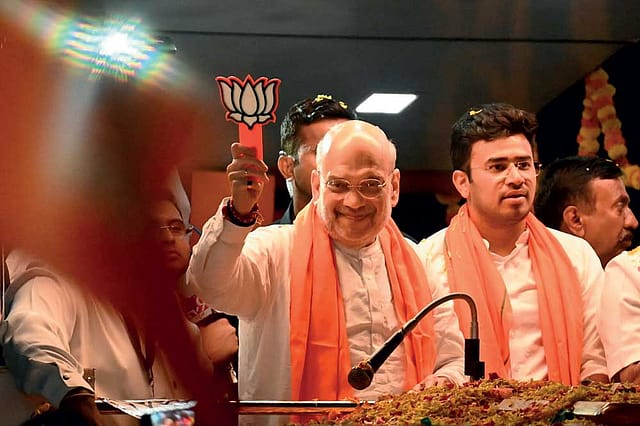Social Intelligence

PRIME MINISTER Narendra Modi recently completed 24 years in public office. On his political journey, Modi has developed a strong and committed team of leaders who work day and night to fulfil his mission, such as Amit Shah, Dharmendra Pradhan, Ashwini Vaishnaw, Mansukh Mandaviya, and others. Modi and his team have a deep understanding of Indian society and its politics. Because of this understanding, these leaders contribute substantially when they lead election campaigns in the states they are in charge of, be it parliamentary or Assembly polls. Amit Shah is known for his contribution to BJP’s sweep in Uttar Pradesh (UP) in the 2014 General Election which became crucial to the party’s historic victory. In 2017, he was credited with BJP’s victories in UP, Uttarakhand, Gujarat, and Manipur. Pradhan provided impressive leadership in the 2022 Assembly election in UP which resulted in BJP’s triumph. Pradhan, too, is known for his knowledge of Indian social structure. He looks at social and governance details when discussing schemes and developmental plans.
Shah is the most prominent and influential face in the prime minister’s team. He works as Modi’s close confidant and he has been a committed colleague through Modi’s political career. Shah’s grasp of North Indian society was observed during the 2014 Lok Sabha polls when he worked out a social chemistry in UP which worked to BJP’s benefit, resulting in the National Democratic Alliance (NDA) winning 73 of the 80 seats in the state.
Shah put together a caste and community alliance in BJP’s favour in these elections by providing these groups electoral representation and dignity for their caste identities. He mobilised community leaders of marginal castes and communities in UP. He has evolved a deep insight into how caste identities are formed and their interplay in North India. It was reported in newspapers during those days that Shah had attended more than a hundred caste-community conferences across UP. That helped BJP win the support of social groups in the state that had not traditionally been part of its voter base.
Openomics 2026: Continuity and Conviction
06 Feb 2026 - Vol 04 | Issue 57
The performance state at its peak
What Amit Shah has acquired is an understanding of what dignity means for communities struggling to develop themselves and become upwardly mobile. He has seen how the sense of dignity may be constructed with resources of identity, such as caste histories, icons, heroes, etc. In the caste conferences, memories and histories of the communities were invented and narrated, playing an important role in determining their political orientation. Moreover, these castes and communities also compete to assert their identities. A superior identity helps a group’s claim for its share of power and development. By understanding this competitive urge among the communities, Shah managed conflicts in the process of identity formation and created a balanced, ‘rainbow’ coalition among UP’s social groups.
Having been trained in RSS and having worked in Vidyarthi Parishad in Gujarat, Shah has developed an understanding of communities which is oriented towards weaving the social fabric with his own communicative influence and negotiating skills. Having worked with cooperatives as a leader, he has learned the social skill to balance contesting and conflictual groups. Shah has emerged as an impressive and convincing orator who uses arguments, visions, plans and data in his speeches from public rallies to Parliament. Such richness of content in political performance determines the longevity of political life.
Amit Shah’s social vision and understanding and his political strategies have helped BJP win election after election. He plans pragmatically and strategises the implementation of Modi’s vision with his colleagues. Prime Minster Modi has acquired a dedicated and effective political team that may fulfil his goal of Viksit Bharat by 2047.
